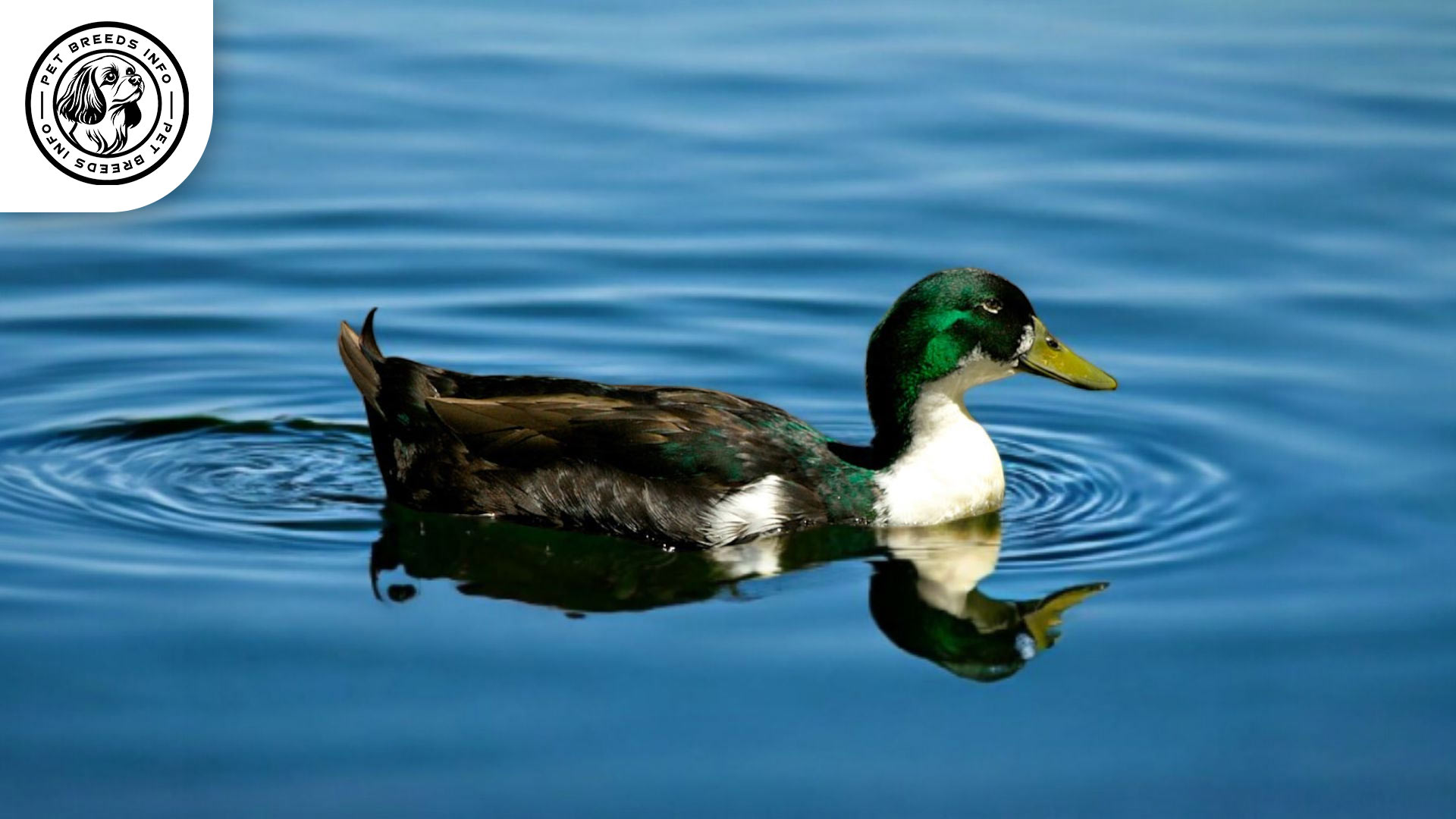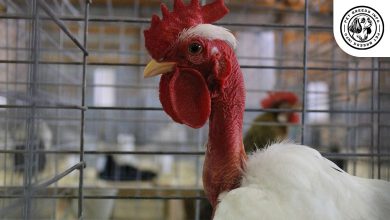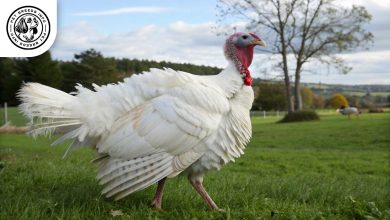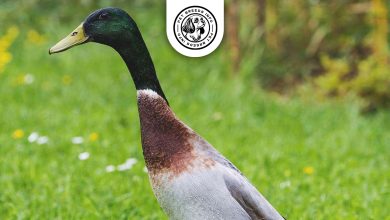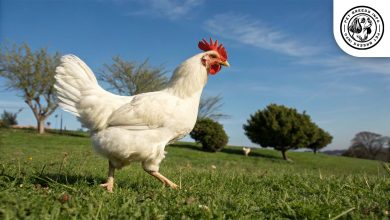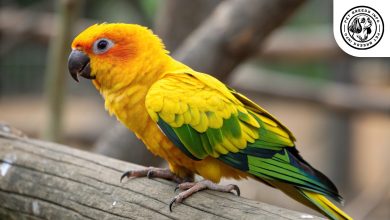Duclair Duck Breed: Personality, Lifespan, Food & Care
General Introduction of the Breed
The Duclair Duck, known simply as “Duclair” in French, originates from France. This breed is named after the town of Duclair in Normandy, where it was primarily developed.
The Duclair Duck has been bred for both meat and egg production. It is often compared to other high-quality meat ducks like the Rouen or Pekin. Historically, this duck has been favored by French farmers due to its excellent growth rate and flavorful meat.
Table of Contents
| Common Name | Duclair Duck |
| Scientific Name | Anas platyrhynchos domesticus |
| Origin | France (Duclair, Normandy) |
| Size | Medium; Males: 6.5–7.5 lbs (3–3.4 kg), Females: 5.5–6.5 lbs (2.5–3 kg) |
| Lifespan | 7–10 years |
| Colors | Black or blue with a white bib; dark or slate bill; iridescent feather sheen |
| Talking Ability | Low – communicates with soft quacks |
| Noise Level | Low to moderate – generally quiet |
| Social Behavior | Calm, friendly, sociable with other birds and humans |
Physical Characteristics
The Duclair Duck is a medium-sized breed, with males typically weighing between 6.5 to 7.5 pounds (3 to 3.4 kg) and females weighing around 5.5 to 6.5 pounds (2.5 to 3 kg).
Its plumage comes in two main variations: black with a distinctive white bib or a rarer blue version with a similar white marking. The feathers have an iridescent sheen, giving them a glossy appearance.
The Duclair Duck has dark brown to black eyes, and its beak is typically dark gray to black in the black variety and a slate color in the blue variation.
The breed’s ears are small and well-hidden under its dense feathers, while its tail is short and slightly upward-curving.
A distinguishing trait is its deep, compact body, giving it a robust and well-built appearance, ideal for meat production.
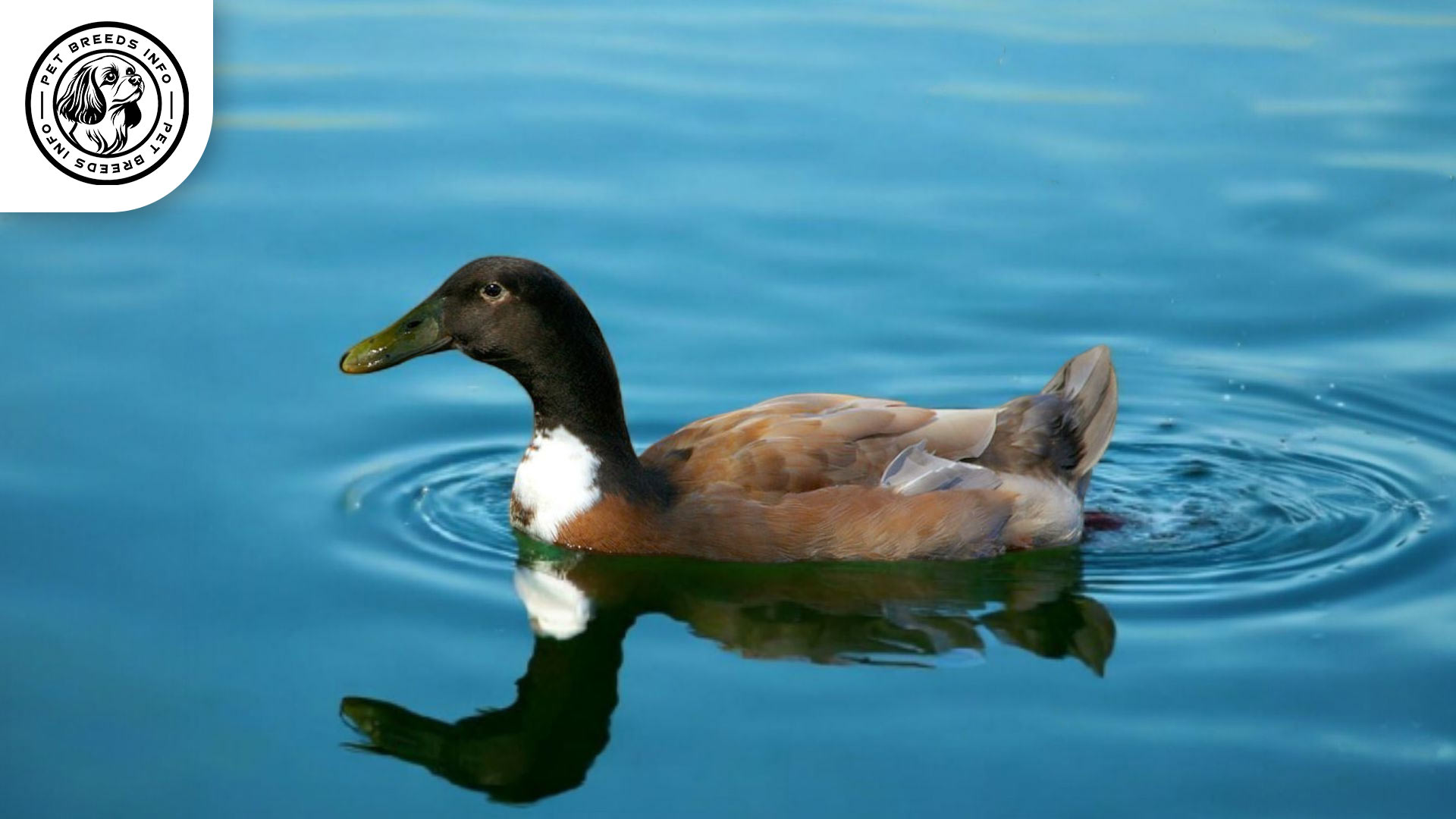
Personality and Temperament
The Duclair Duck is known for being calm, intelligent, and easy to manage. It adapts well to both free-range and confined environments.
This breed has a moderate energy level and enjoys foraging, making them a great addition to a farmyard or backyard pond.
They are friendly and can become quite attached to their caretakers when raised from ducklings.
Duclair Ducks are sociable and do well in groups, both with other ducks and other types of poultry.
Although they do not have strong hunting instincts, they enjoy foraging for insects and small plants.
They are hardy and tolerate environmental changes but prefer a stable and safe living space.
Care and Maintenance Requirements
Duclair Ducks require moderate exercise and enjoy areas where they can forage naturally.
They can be raised in backyard settings with access to a water source like a pond or kiddie pool.
Grooming needs are minimal as ducks preen themselves regularly. However, they appreciate access to clean water for bathing.
They are tolerant of various climates but need shelter from extreme heat or cold.
Read More: Musk lorikeet Bird
Basic hygiene includes keeping their living area clean, providing fresh water, and trimming nails if necessary.
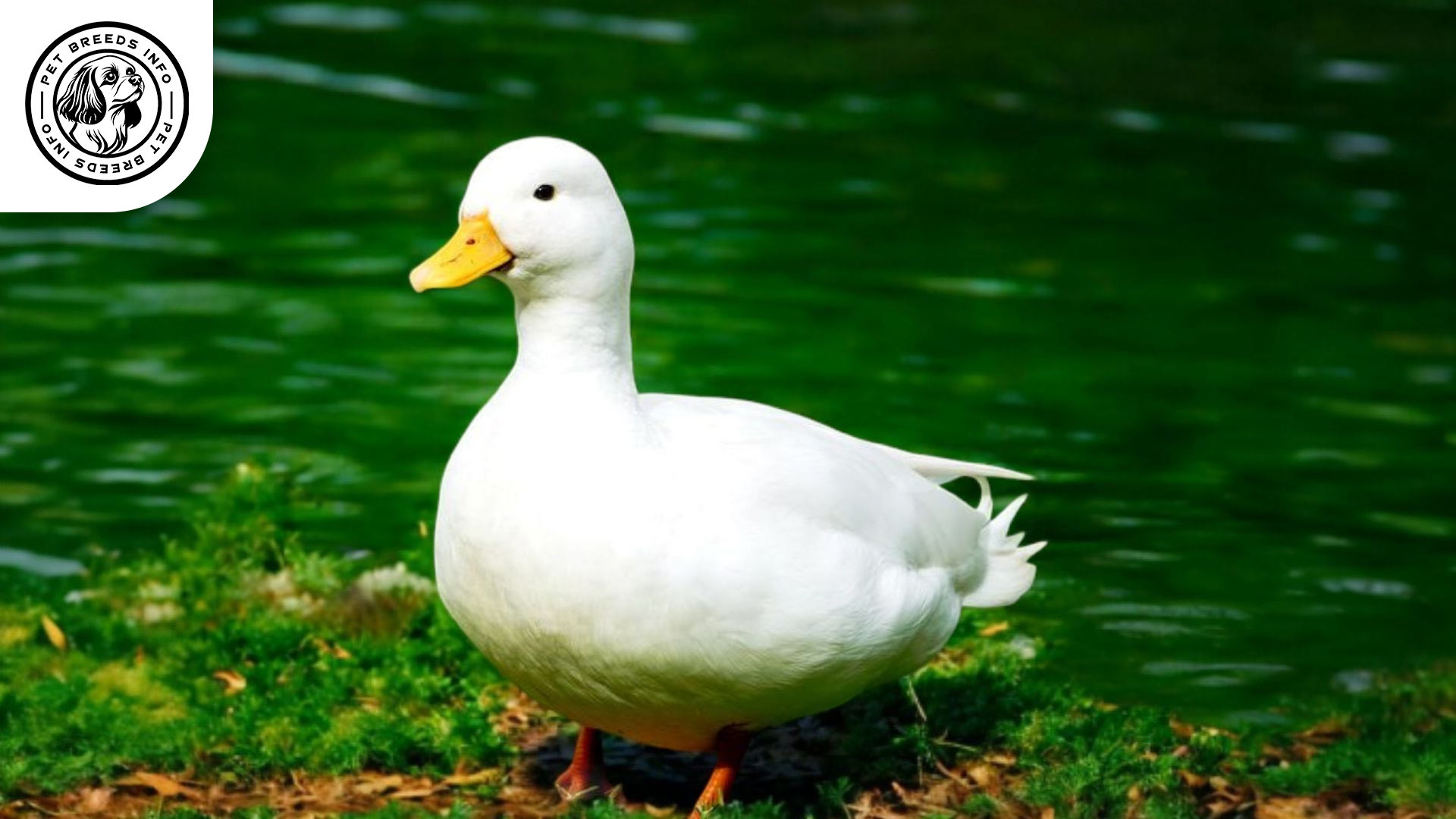
Diet and Nutrition
Duclair Ducks thrive on a balanced diet consisting of quality duck pellets, grains, and vegetables.
They benefit from occasional supplementation with leafy greens, mealworms, or small fish.
Avoid feeding them processed foods, salty snacks, chocolate, or avocado, as these can be harmful.
Portion sizes depend on age and activity level, but they should always have access to fresh water and food.
Health and Common Medical Issues
Common health concerns include respiratory infections, parasites, and foot injuries (bumblefoot).
They are generally hardy but should be monitored for signs of obesity if they are not active enough.
The average lifespan of a Duclair Duck ranges from 7 to 10 years with proper care.
Regular vaccinations, deworming, and general health check-ups can help maintain their well-being.
Read More: Masked Lovebird
Training and Behavior Management
Duclair Ducks are relatively easy to train for routine behaviors such as coming when called or following a feeding schedule.
Patience and consistency work best when training them.
Socialization from an early age helps them become more docile and accepting of human interaction.
Using positive reinforcement, such as treats, can encourage good habits.
Interaction with Other Animals and Humans
These ducks do well with children, especially when handled gently and raised in a family-friendly setting.
They coexist well with other poultry such as chickens and geese.
Duclair Ducks are suitable for families, homesteads, or individuals looking for a friendly yet low-maintenance duck breed.
They are social birds but still maintain a degree of independence, making them easy to care for.
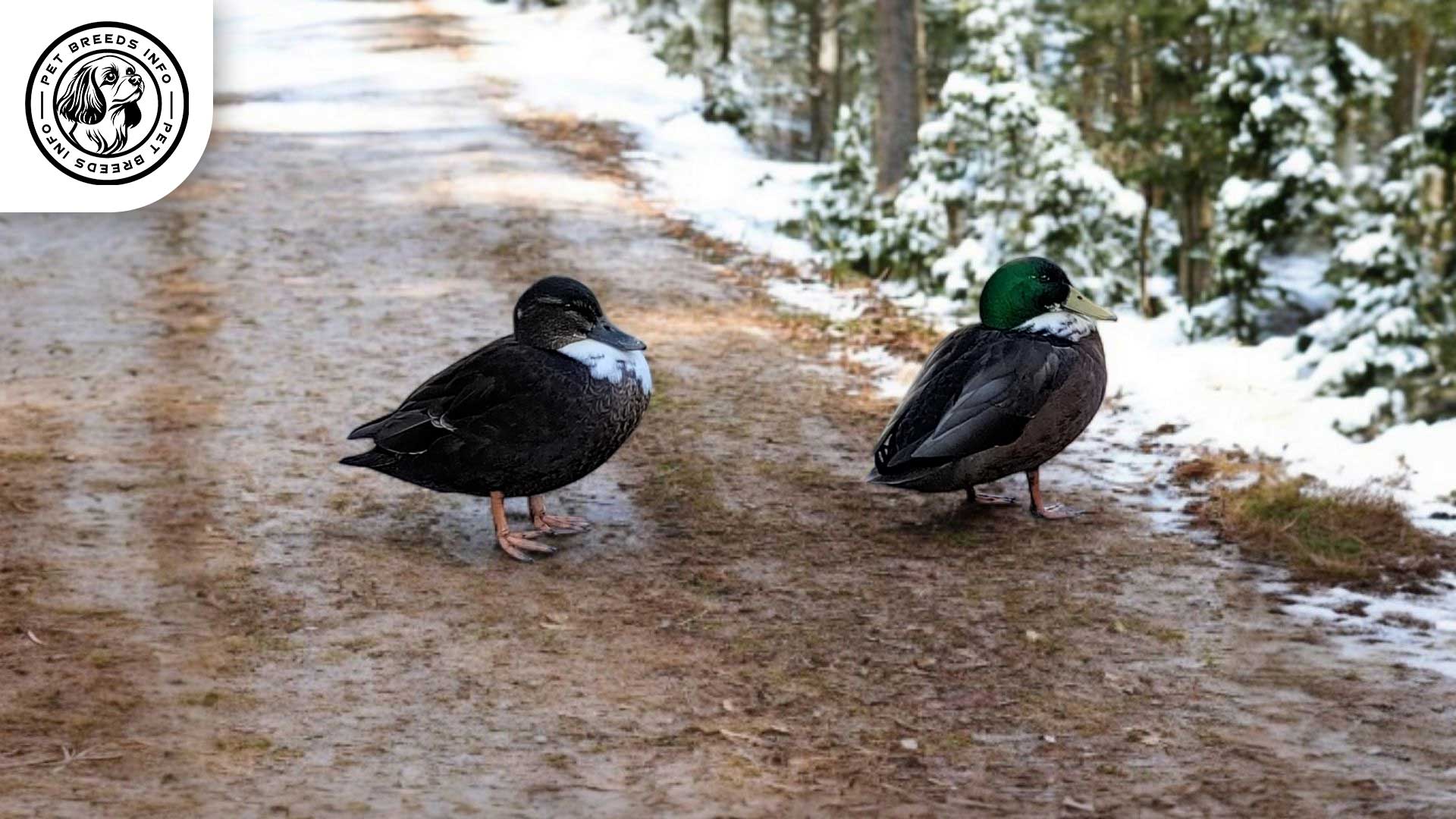
Price and Availability
A Duclair Duck typically costs between $10 to $25 per duckling, depending on the breeder and location.
Availability varies, but they are best acquired from reputable breeders, poultry farms, or agricultural hatcheries.
Adoption from farm rescues or duck shelters is also an option for those looking to provide a home for abandoned ducks.
Conclusion and Final Thoughts
The Duclair Duck is an excellent choice for those seeking a dual-purpose duck breed that offers both quality meat and a good supply of eggs.
It is well-suited for farms, backyard poultry keeping, and homestead settings.
Read More: Maui Sunrise Macaw (Hybrid) Bird
Potential owners should consider the need for access to water, adequate shelter, and companionship when raising Duclair Ducks.
FAQ
Where do Duclair Ducks come from?
They originate from the town of Duclair in Normandy, France.
Are Duclair Ducks used for eggs or meat?
They are a dual-purpose breed, known for both high-quality meat and consistent egg production.
What do Duclair Ducks look like?
They come in black or blue plumage with a white bib and have a compact, meaty build.
Are Duclair Ducks good for beginners?
Yes, they are calm, easy to manage, and adaptable, making them great for beginners.
Do they need a pond?
While not essential, access to a pond or kiddie pool improves their quality of life.
